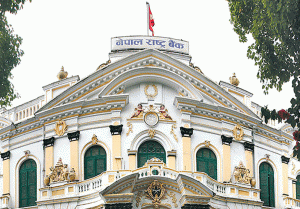Op-ed editors of major broadsheet dailies published in Kathmandu on Tuesday have focused on different aspects of the upcoming elections and how the electoral process is becoming expensive for candidates. Here’s a quick summary of what opinion makers are talking about in the press today:
The economics and politics of elections

With the first round of parliamentary and provincial elections just a week away, political parties, candidates and even the Election Commission have stepped up their spending. This is only natural in a democratic setup as elections are a lifeline for democracy, says Prof Krishna Khanal in his article for Annapurna Post. Khanal, however, warns that this should not be taken as an excuse to spend unlimited amount of money in an opaque and unaccountable manner. If political parties continue to do just that, people will lose faith in the elections.
Khanal argues that money earned through corrupt practices is being funnelled into the political system. He says that looking at the money that flows in the market during elections, it would be hard for anyone to imagine that Nepal is a poor country. According to rules set by the Election Commission, a candidate for Parliament can spend up to Rs 2.5 million for his campaign and in the case of provincial assembly, the figure stands at Rs 1.5 million. The law even goes on to say that anyone found to have used money to influence results will be disqualified from the electoral race. But all these provisions are limited to paper.
He says that politics has now gone beyond the reach of ordinary Nepalis. Only contractors, real estate agents, and foreign employment agents who have the money power can contest elections in Nepal.
Is corruption controlling elections in Nepal?

Narayan Manandhar, in his article for Republica, says that in a corrupt political system, instead of elections controlling corruption, it is corruption that controls elections. He says that theoretically, elections should act as an antidote to corruption as it provides voters the opportunity to elect honest politicians and to weed out those who fail to be accountable to the people, but that is not happening in Nepal. He cites a research done in Spain to say that voter turnout is also indicative of the level of corruption in the system. He argues that when corruption is distributive, reports of corruption will not have a bearing on the outcomes. Voters turn a blind eye to corrupt politicians when they too benefit from corruption; they punish the incumbent only when they do not share the spoils.
Whither the Congress agenda?

The Left Alliance, the coalition of Nepal’s main communist parties, goes into the elections next week on a high. Both the UML and Maoist Centre have a big support base and leaders are looking at a communist wave in the polls. The Nepali Congress, which is currently in power, seems to have gone defensive following the strengthening of the Left Alliance. Mohan Guragain, in his article for The Kathmandu Post, says Nepali Congress leaders, when they address the masses, forget the contents of their election manifesto and are consumed by fear. “Rather than offering arguments about why they should win, they are vocal about why the left bloc must lose,” he argues. He says that for anyone believing in liberal democracy, the Nepali Congress would have been a natural choice, but the way the Nepali Congress is conducting its campaign, people have doubts.
‘Left’ vs ‘Democrats’

Jainendra Jeevan, in his article for Nagarik, says it was not necessary for the Nepali Congress to attempt to put together a ‘democratic coalition’ in response to the formation of the left coalition. He argues that the Nepali Congress should have rather focused on managing its internal issues. The party is plagued by groupism and its ideological base is rusty.
Meanwhile, the left alliance seems to have managed the selection of candidates pretty well. But it remains to be seen if the alliance, forged at the top, can encourage partnerships at the grass roots.
Jeevan argues that the Nepali Congress’ argument that a communist win will usher in autocracy in Nepal is not justified. He says that even if the communists win majority, a large chunk of voters would have still voted for the Nepali Congress. For an autocratic system to emerge in Nepal, it would require support from international forces and the army, both of which seems impossible at the moment, he adds.
























